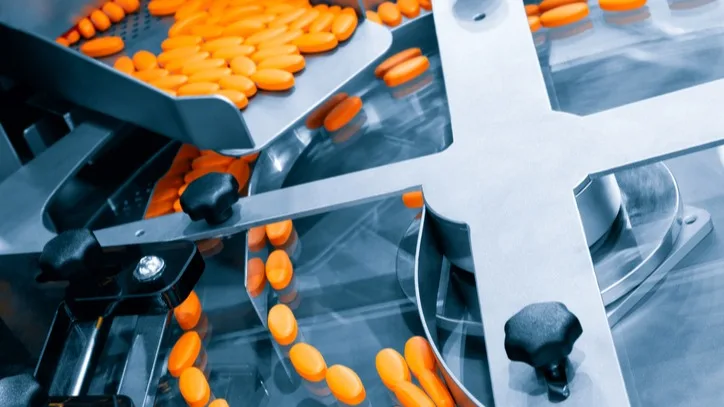
Overview
As biopharmas report first quarter earnings, executives are being asked to respond to the Trump administration’s many changes to the business environment, regulatory scene and domestic manufacturing.
Shifting Policies, Changes at Regulatory Agencies and a Push for More Onshore Manufacturing Could Impact the Business Environment
During this season’s earning calls, one topic repeatedly came up across the biopharma sector: how are you planning to deal with the changes the Trump administration is making across the industry?
The answers varied as widely as the size and scope of the companies queried, as top U.S. and multinational biopharma companies adjust their strategies amid early moves by the Trump administration to reassert tariffs, restructure federal health agencies and push for domestic drug manufacturing.
In recent earnings calls, executives at Pfizer, Eli Lilly, Gilead, Biogen and Novartis outlined areas of concern and opportunity as the policy landscape shifts.
“In 35 years in this industry, I’ve never had to spend as much time as we have as a team on tariffs in the first quarter,” said Chris Viehbacher, President and CEO of Biogen on the company’s earnings call. “The whole tariff situation is changing daily, and it’s difficult to predict.”
Most of the executives touted their existing U.S.-based manufacturing and research and development efforts, as well as plans to expand in the country as a hedge against import taxes. The push to bring more drug manufacturing to the U.S., especially for essential medications, would help address any national security concerns as well, said Pfizer CEO Albert Bourla, PhD, during the company’s earnings call.
“No country wants to have critical medicines produced outside of the country,” Bourla said. “In particular, they don’t want to have critical medicines produced in countries where tensions are high or can be escalated.”
But whether tariffs are the right tool to achieve that goal isn’t something these executives would agree to.
“We support the U.S. Government’s goals to increase domestic investment,” said Eli Lilly Chair and CEO Dave Briggs, PhD, on the company’s earnings call. “However, we don’t believe tariffs are the right mechanism.”
Tariffs and Biopharma Supply Chains
Pfizer and Novartis both warned that proposed tariffs on imported pharmaceuticals or ingredients could raise costs and disrupt global supply chains. Pfizer has already factored $150 million in potential tariff costs into its 2025 guidance, while Novartis is expanding U.S. manufacturing at its New Jersey facility as a hedge. Gilead said existing tariffs on lab materials are manageable, but it is monitoring future actions closely.
“We urge the administration to negotiate deals with key trading partners as soon as possible, to level the playing field for American exporters like Lilly, and remove harmful tariffs and non-tariff market access barriers in the developing economies,” said Eli Lilly’s Briggs.
U.S. Drug Manufacturing Incentives
Lilly and Pfizer said they welcome incentives to build and expand production in the U.S., such as tax credits or expedited permitting. Pfizer’s Bourla said additional clarity from the White House would unlock “tremendous investments.” Gilead noted it already has several U.S.-based manufacturing sites under development.
“The U.S. is our most important single market from a growth and revenue standpoint,” said Novartis CEO Vas Narasimhan, MD, said on that company’s earnings call. “We want to be in a position to be able to produce all of our key medicines end to end in the U.S.”
FDA Staffing and Regulatory Stability
Most companies said their FDA interactions remain smooth for now. Biogen’s CEO said some statements by Commissioner Marty Makary, MD, regarding innovative approaches to using AI, reducing animal testing and reevaluating ultra rare disease clinical trials could be helpful.
“I personally am encouraged by some of the more recent comments by the new commissioner,” Biogen’s Viehbacher said. “There’s certainly a lot of change going on at the FDA, and we’re watching, very carefully.”
Gilead was pressed by analysts on whether the company might face disruptions to its coming FDA review for the first twice-yearly HIV prevention drug, lenacapavir, scheduled to occur on or before June 19, and any subsequent commercial launch.
“To date we haven’t heard or seen anything that would cause us to alter our plans or expectations,” CEO Daniel O’Day said during Gilead’s earnings call. “We’re having discussions with policymakers to emphasize the importance of lenacapavir [as a preventative for HIV], and in particular in relation to their stated goals of addressing chronic disease in this country and the value of prevention.”
Policy Volatility and Biotech Headwinds
Biogen’s Viehbacher said the biopharma market is suffering from a prolonged decline in investment, however, that could lead to more deals and collaborations between companies.
“There’s a lot of companies who are struggling to get financing,” he said. “So, there are opportunities in there.”
Executives at Pfizer and Biogen cautioned that U.S. political uncertainty is eroding investor confidence and weakening the domestic biotech ecosystem. Bourla called for policies that balance national security concerns with support for innovation, warning that China is gaining ground as U.S. funding tightens.
“With crisis, there are risks, but also there are tremendous opportunities,” Pfizer’s Bourla said. “The status quo is changing. So ,you need to be strategic. You need to be smart. You need to be disciplined.”








